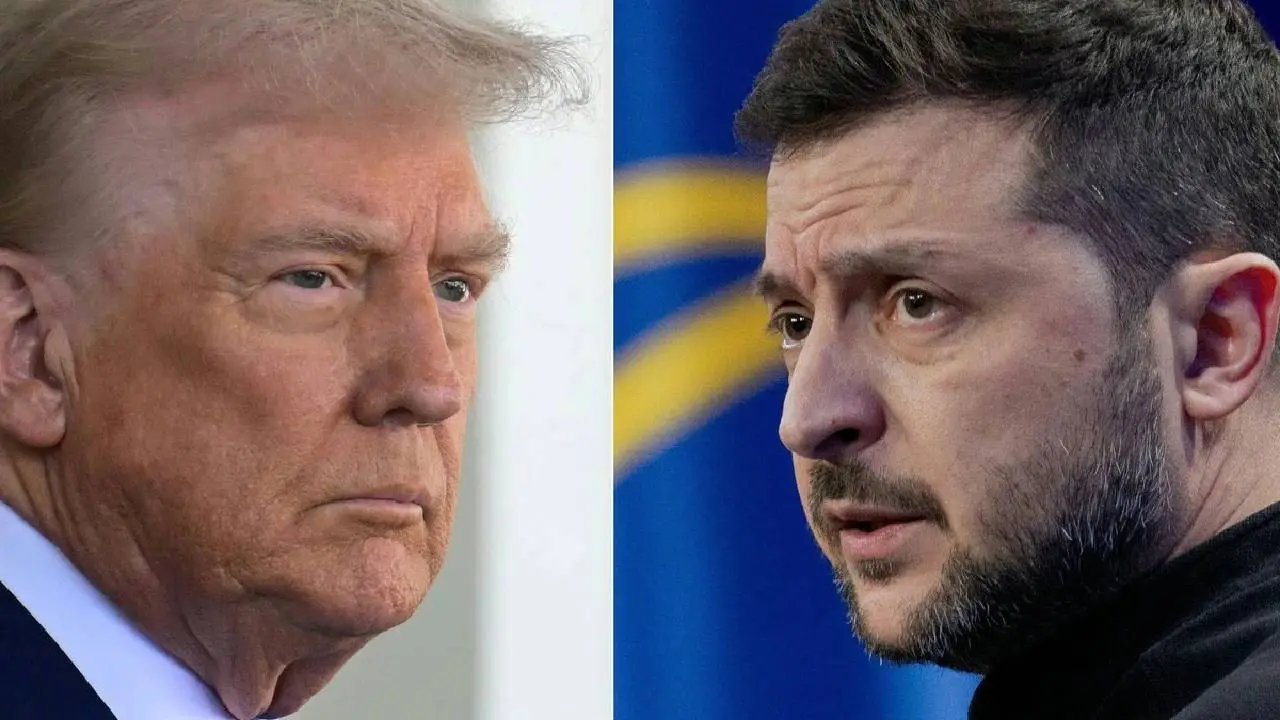
(Credit: OpenAI)
International News: Trump openly declared that Ukrainian President Volodymyr Zelensky can no longer prolong the war, stressing that the presented peace plan must be accepted. His statement signals direct strategic pressure. According to diplomatic sources, the approach is heavily inclined towards Russian interests. Security experts warn that forcing Kyiv into compliance risks weakening Ukraine’s sovereign authority. Observers believe the tone adopted by Trump indicates urgency more than partnership. Questions are now rising over whether Ukraine will accept or resist the imposed terms.
The peace blueprint reportedly demands Ukraine surrender complete control of the eastern Donbas region. It also suggests significant downsizing of Ukraine’s military capability. A key clause calls on European nations to formally promise that Ukraine will never be inducted into NATO. Critics argue the plan favours Moscow’s geopolitical objectives. Trump expects Zelensky’s formal response by next Thursday. Analysts believe Ukraine will seek extensive consultations before any final decision. Pressure appears to be increasing ahead of the response deadline.
President Zelensky admitted Ukraine is facing one of the toughest phases in its modern history. Russian airstrikes continue to target vital energy infrastructure, deepening public discomfort before winter. Corruption allegations within the government have added to internal strain. Military exhaustion is visible and operational challenges are growing on the front lines. Analysts fear that morale may decline further if conflict continues without firm support. Zelensky warned that Ukraine must choose between losing dignity or risking vital alliances. His address reflected uncertainty and urgency.
Zelensky has not spoken directly to Trump since the announcement of the plan. However, he stated that communication might take place in the coming days. Kyiv is currently assessing both consequences and strategic options. Advisors say Ukraine will consult Western allies before formulating a response. Diplomatic channels remain operational but cautious. Observers believe Kyiv wants assurance of backing before reacting. Sources indicate that rejection may bring diplomatic strain while acceptance could invite political backlash.
The plan’s central demand for ceding full control of Donbas could provide Russia major symbolic and territorial advantage. Despite partial Ukrainian hold in the region, the proposal mandates immediate withdrawal. Experts believe this would strengthen Moscow’s influence across Eastern Europe. Some strategists warn that accepting such terms could embolden future territorial aggression. Russia may also gain defence and economic leverage if the settlement is approved. This has escalated debate over regional power imbalance. Concerns are being voiced internationally.
Trump’s stance suggests a shift towards unilateral decision-making on global conflict resolution. He claimed the US holds a concrete method for peace establishment. Some diplomatic analysts appreciate the initiative if it helps reduce hostilities. However, critics argue that pressuring Ukraine without thorough multilateral accord may destabilise European security. Policy experts believe this may reflect aggressive negotiation tactics rather than balanced mediation. Global reactions are mixed and cautious. The final outcome may redefine US role in regional security.
If Ukraine accepts, it must concede territory, reduce military strength and distance itself from NATO prospects. Such compliance could trigger strong domestic resistance. If it rejects the proposal, conflict may intensify and diplomatic support could weaken. Ukraine is likely to explore modified negotiation rather than full agreement. Allies are expected to influence Zelensky’s decision. The next week is considered crucial in shaping geopolitical direction. Analysts describe the situation as a complex turning point for European stability.





Copyright © 2026 Top Indian News
